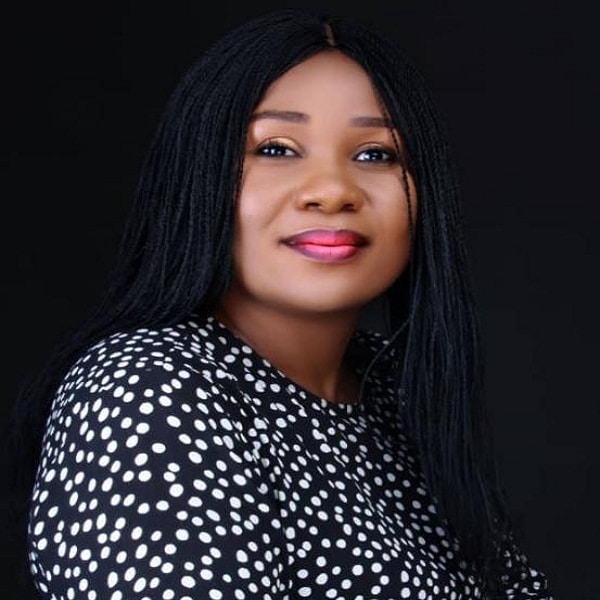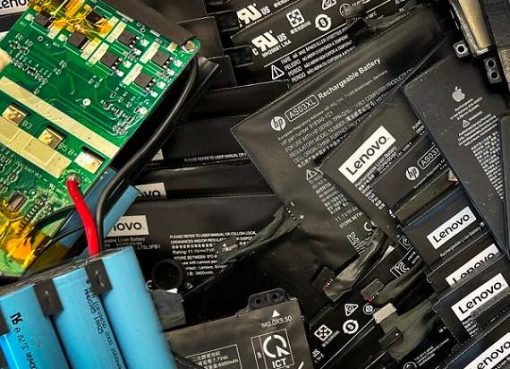Engr Atinuke Wuraola Owolabi is the CEO of Wurvicat International Limited and founder of some NGOs active in empowering and uplifting lives. She is a graduate of electrical engineering from University of Ilorin, Nigeria and holds a Master in Engineering and Management of Coventry University, UK.
Her passion is to serve. Engineers’ Forum discovered a woman who uses her passion for engineering to change the lives of many.
You cut teeth with some majors in the power industry, Shoreline Power (a subsidiary of ABB Electrical System) and Schneider Electric, before leaving to set up Wurvicat International limited. What is your assessment of the Nigeria Electricity Supply Industry?
The industry is evolving gradually, but very slow. There is still a lot more to be done for the industry to play the critical role of being an enabler of national economic and technological growth.
As you know, the industry was privatized in 2013, broken down into mainly Gencos, Transco, the Discos, different regulatory bodies like NERC, NBET, etc., and the customers. Other players are managing different segments of the electricity value chain. It is only standard, just as in team development, for this new arrangement to go through formation, storming through to a stage where performance becomes a given. For me, I would say the industry is at the norming stage of its development. As we can see, blame trading is no longer as prevalent as it used to be. Different players along the industry value chain seem to understand their roles better and have learned to do their best within the industry constraints limit. While addressing constraints, the industry is still fretting with many restrictions ranging from regulatory, financing, governance, electricity pricing, and metering to human capacity development.
Several key issues need to be addressed. Investors need a guarantee of returns through a practical policy framework covering considerations such as the legal rights of shareholders, employees, and other stakeholders and their ability to obtain redress if their rights are violated. This framework will include the protection of stakeholders through regulation and requirements for full disclosure of risks.
The recent performance-based tariff adjustment is the right step in the right direction. However, the government and all industry stakeholders still need to do more to see the industry’s continuous positive development
The government needs additional legislation to provide as operating a business would be chaotic without predictable rules and regulations to follow. One party could easily take advantage of another party because it would be impossible to know how each party could or would act in any given situation, which necessitates the rule of law that provides essential stability, consistency, and certainty in a potentially volatile business environment. Guidelines should be in place for universally acceptable behaviours to ensure that organizations act predictably and responsibly. Many other factors impact how the company is controlled, managed, and held accountably, and many of these factors fall squarely in the government’s jurisdiction.
Critical is the power supply, coupled with inadequate power generation, transmission, and distribution infrastructure. For the energy sector to be effective, energy bills should be based on the actual energy consumption, and likewise, customers must pay for used energy. To achieve this, the Nigerian Electricity Regulatory Commission (NERC) recommended Metering-the installation of prepaid meters for all customers, but as of today, there is no full compliance with this regulation. Further investments and commitment are still in want for energy generation and distribution assets.
Let’s have your views on the FG/Siemens deal
The FG/Siemens electrification road map for Nigeria is a commendable move by the federal government to modernize and increase the national grid’s operational capacity in phases from 7,000MW in phase 1 to 25,000MW phase 3. The initiative is expected to move Nigeria forward in its journey towards achieving the reliable and affordable electricity supply required for economic growth, industrialization, and poverty reduction.
My only advice to both the federal government and Siemens is to ensure that our local engineers and contractors are carried along and involved in the project implementation. I am confident that we have enough local competences to execute most of the project. I am looking forward to well above 90% involvement of local engineers and other critical personnel in the project execution.
All agreements to ensure steady power supply is fair as it is to deliver electricity to Nigerian businesses and homes and this extent, I will support this agreement. Statistics show that the country has more than 13,000MW of installed electricity generation capacity but only 7,500MW is available and less than 4,000MW is dispatched to the grid each day. This partnership with Siemens will modernise the existing network by understanding the challenges to proffer solutions before enlarging it until the country can produce and distribute 25,000MW. Several other critical agreements are still required. Let’s say we are at an infancy stage in our electricity industry development.
Over the years you have exhibited this passion to protect, project and engage female engineers at all times. Do you feel female engineers are facing an existential threat or being ignored?
I will say both. This is attributable to, one archaic societal believe that educating a female child is wasteful, as they would eventually be married off to become housewives. Two, that engineering practice is energy-intensive and it is a profession that does not fit the biological construct of women. These are beliefs that had been proven to be untrue over the years going by the different exploits of women in engineering practice in Nigeria and all over the world.
However, I will like to say that the situation and involvement of women in engineering in Nigeria and the world have improved over the years. For instance, the immediate past NSE Ikeja Branch is a lady, and we have had another lady chairman before her. I am the current technical secretary of the same branch. It is the same at the national exco level and other units across the country. So, one can say that the situation had improved from the way it was in the past, but more still has to be done to encourage women participation and involvement in engineering. I run an Engineering firm and I’ve never faced any threat. You have to believe in yourself.
More importantly, if you look at our girls’ enrollment ratio to boys in the STEM-related courses, the gap is getting closer year on year. This has been made possible by our women engineers’ involvement in various activities such as STEM-relating, encouraging, mentoring and coaching our young ladies on the need for them to embrace engineering as a profession, not to be discouraged by the long-held misconceptions about engineering practice and women.
By and large, there has been a lot of improvement in women’s participation in engineering practice over the years. We will like to see more of this improvement and personally, and I believe for a lot of our women in engineering, we remain committed to providing encouragement, mentoring, and coaching to our young ladies to embrace engineering and excel in the profession.
There’s no doubt that you’re also passionate about developing the engineering profession. You serve in the Executive Committee of NIEEE, NSE Ikeja Branch, APWEN etc. what propels you to serve?
Thank you. I must say that service to the people has always been in my DNA with all sense of modesty. This is mainly due to the kind of parental upbringing that I had along with my other siblings. So, I desire to contribute to my community and country’s development through the development of the engineering profession and institutions. You know engineering is key to national economic growth, productivity, and development. I considered it that whenever I join hands with other engineers in contributing to the profession’s growth, I am indirectly contributing to national growth and development. We all have to bear in mind that nation-building is our collective responsibility. The question I often ask myself is: If we don’t do it, who will?
You are involved in some NGOs to empower, mentor and uplift lives. Among these are Wurvicat Solar Foundation, Touch of Love and Lifting Hands Foundation etc. tell us what they are about?
I am very passionate about giving back to society! These foundations are meant to demonstrate my commitment to the disadvantaged in my community, inspire the young ones, care for our widows, and show love to those aged and abandoned.
Every capable citizen should be involved in voluntarily giving back to the society that would have a social and economic impact by integrating his/her financial resources and political support in addressing and solving environmental and societal problems to ensure improved lives and sustainable development.
All lives matter and our passion are to make lives predominantly female lives full of impact and meaningful.
Many people see you as a social butterfly that you are, where do you get the energy from to be everywhere to serve and then find time to play golf?
I dedicate all my achievements to God almighty, who gives me strength daily to keep going on. Much of my energy is from my late mother, who taught me and encouraged me never to stop in all my endeavours.
As a mother, wife and a career woman, how do you create a balance?
We have 24 hours in a day and God made it so. God himself rested and that means we must rest. Also, one of the greatest assets in every sphere is human capital so I build my team to keep going on even when I am not around.
I value family life; hence I deliberately create time for all aspects of my life and endeavours. It is all a matter of one’s priorities.
What future do you see for engineering practice and development in Nigeria?
The future is bright for engineering practice in Nigeria. Engineering is the bedrock of national development. It is a technological development that will give birth to sustainable economic growth. For this to happen, we have to focus more on local capacity building through training and retraining on the job. Our government needs to begin to trust our local engineers with serious engineering contracts. Patronize and encourage our people to patronize locally made goods. They are helping to build local capacity for technological and industrial growth, innovation, improve manufacturing capacity, wealth and job creation, social harmony, and sustainable national development.
The government had made some effort in that direction through executive order meant to promote local content in public procurement with science, engineering, and technology components. However, we are yet to see its implementation. Nigeria is a developing country with many green projects in the areas of infrastructure and energy development. So, the future is very bright for engineering practice in Nigeria. The earlier we hasten to the development of engineering as a nation, the earlier we can realize our national development objectives.
Engineering never stops, and we always must keep going to do better. Teamwork is a vital element for successful engineering. Strong cooperation allows us as engineers to adjust to changes, adapt to diversity, and increase productivity.










